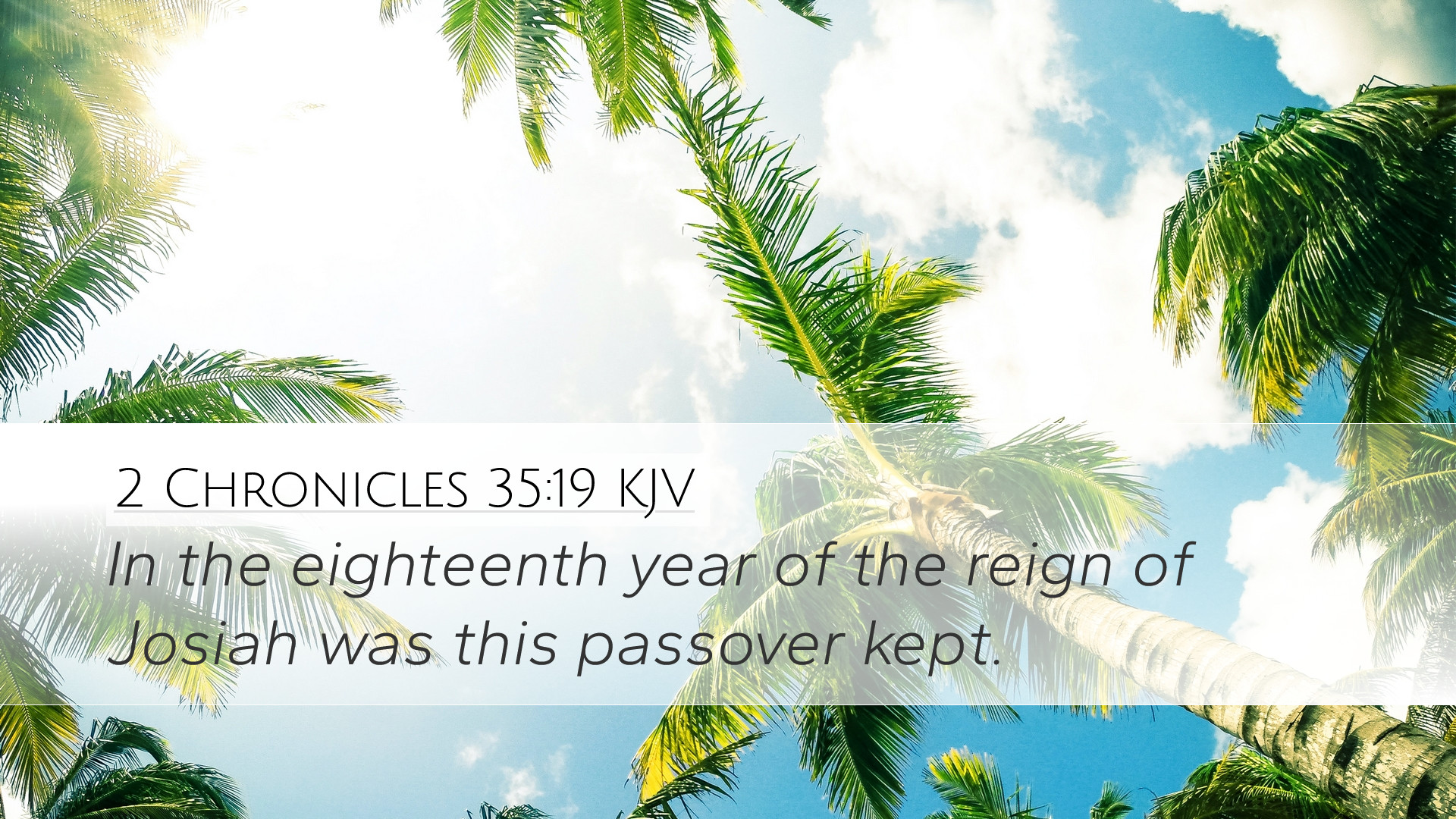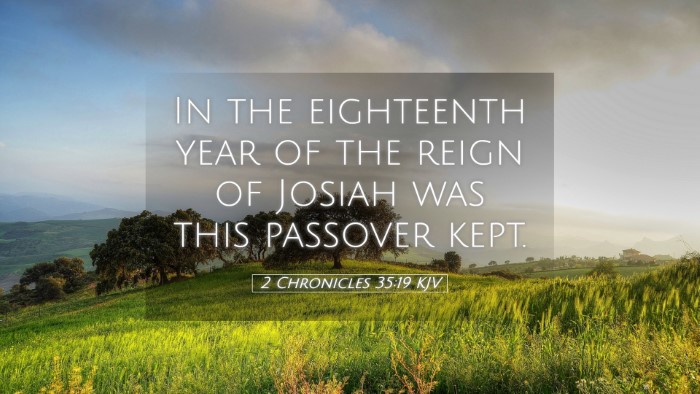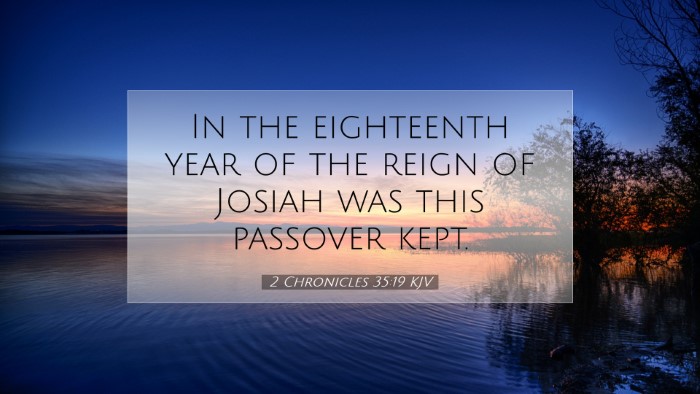Commentary on 2 Chronicles 35:19
2 Chronicles 35:19 reads: “In the eighteenth year of the reign of Josiah was this passover kept.” This verse encapsulates a significant event in the religious life of Israel under King Josiah’s reign. Various commentaries shed light on the implications of this observance, reflecting upon its historical, theological, and practical significance.
Historical Context
According to Matthew Henry, the context of this passage is rooted in the significant reformations initiated by King Josiah, who ruled from 640-609 BC. After discovering the Book of the Law, Josiah sought to restore authentic worship in the nation and cleanse the land from idolatry. The celebration of Passover in the eighteenth year of his reign was a pivotal moment, reinstating a central ritual that had been neglected in prior generations.
Albert Barnes emphasizes that the observance of the Passover in this period marked a return to the covenantal practices ordained by God. It serves as a testament to the king’s commitment to re-establishing the identity of Israel as a people set apart for God’s purposes. The timing—eighteen years into Josiah’s reign—indicates the maturity of his reforms and the revival of priestly duties that had suffered neglect.
Theological Significance
The celebration of Passover held deep theological significance as articulated by Adam Clarke. Passover commemorated God’s deliverance of Israel from Egypt, symbolizing redemption and salvation. Josiah’s reinstitution of this feast underscores the continuity of God’s redemptive plan throughout Israel's history. The restoration of this practice during Josiah’s reign is both a literal and spiritual awakening for the nation, reminding them of their need for deliverance and their covenant with God.
Henry points out that significant theological implications arise from the fact that the Passover points to Christ. As the ultimate Passover Lamb, Jesus’s sacrifice fulfills the essence of what Passover represents. This connection deepens the understanding for pastors and theologians alike as they explore the foreshadowing of Christ in the Old Testament rituals.
Conduct of the Passover
The specifics of how the Passover was kept during this time reveal much about the spiritual zeal of Josiah’s reign. Barnes notes that this celebration was one of the most complete observances of the Passover since the days of the judges. The mention of the priests and Levites actively participating and the people gathering in unity highlights the restoration of communal worship and dedication to God.
- The central role of the priests: Their leadership was paramount as they guided the rituals according to the statutes laid in the Law.
- Unity among the people: The gathering signifies a national response to God’s call, indicating revival.
- The fervency of worship: The emphasis on the proper conduct reflects a return to authenticity in worship practices.
Lessons for Today
The observance of Passover under Josiah provides valuable lessons for contemporary believers. As Clarke suggests, we are reminded of the importance of remembrance in worship. The act of remembering God’s deeds fosters a community that recognizes its dependence on divine grace.
Henry asserts that this reinstatement encourages present-day believers to examine their own worship practices. Are they truly reflective of a heart devoted to God? Likewise, the significance of unity and participation in communal worship stands as a challenge for local congregations today. True revival comes from both individual and collective hearts turned toward God.
Conclusion
In summary, 2 Chronicles 35:19 serves as a pivotal moment in the historical and spiritual narrative of Israel. The celebration of Passover reinstated by Josiah is a reminder of God’s faithfulness and a call for contemporary believers to seek authentic worship. Both the historical reforms and the spiritual implications resonating from this observance invite pastors, students, and scholars to a deeper engagement with their faith, on how past practices can inform present worship.


